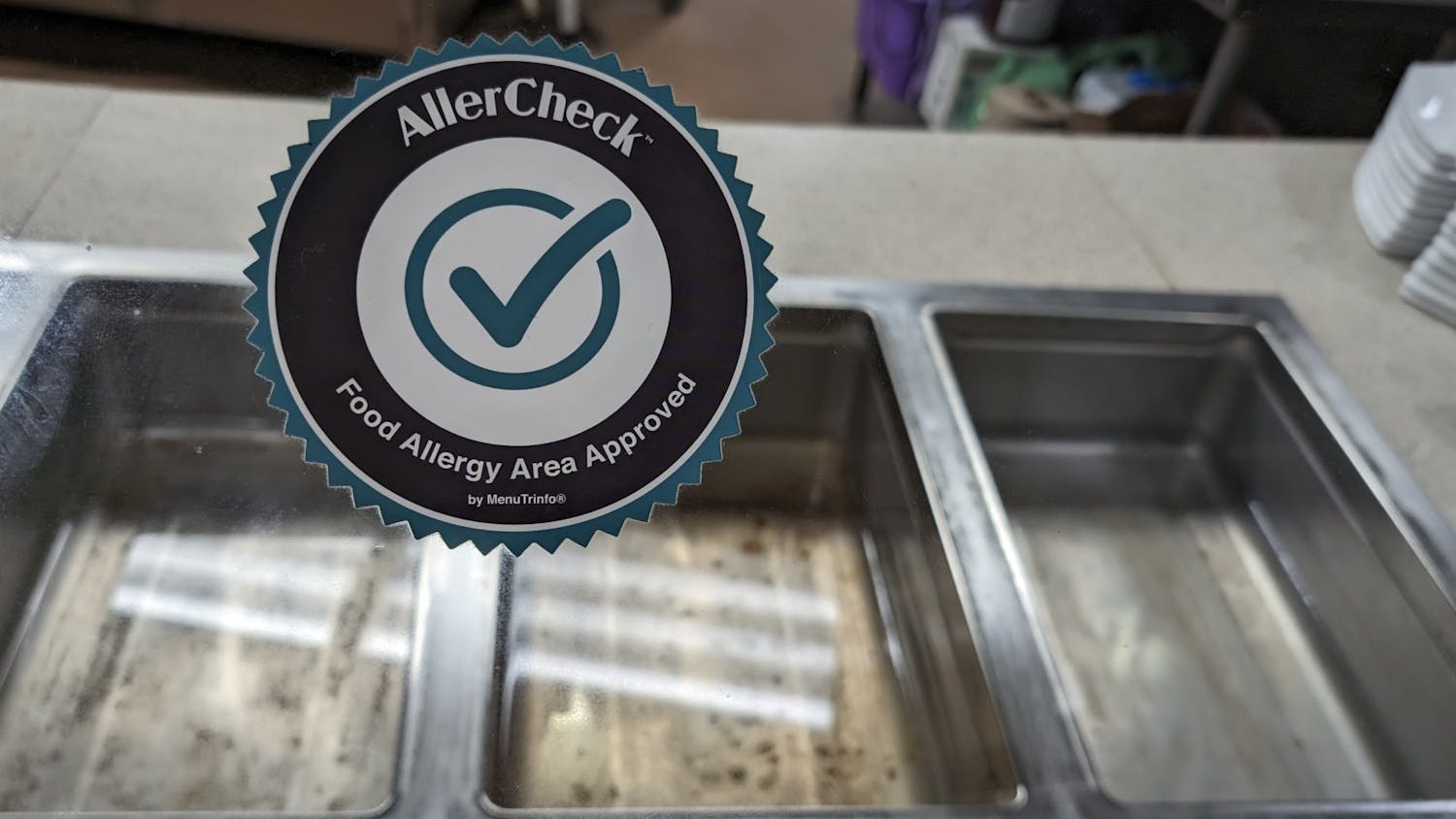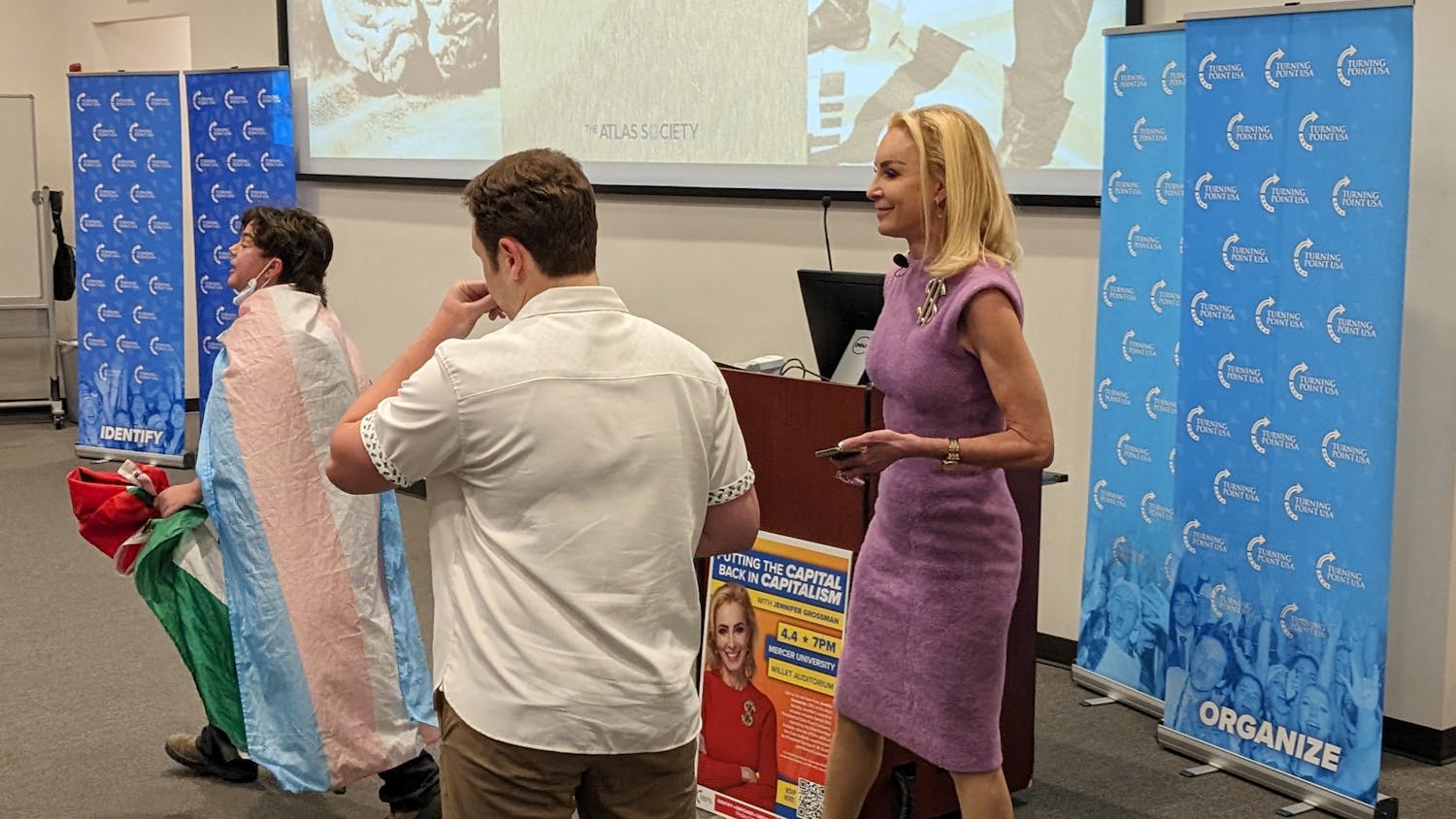
Reduce, reuse and recycle are practically synonymous with the three green arrows dancing in a triangle.
Both represent the friendly reminder to take care of our shared Earth, but are you doing all that you can to help?
Many environmentalists, almost always on accident, use scare tactics to manipulate people into reducing their waste and recycling used materials, but thinking about how humans negatively affect the planet can be a frightening reality.
To bring it all into perspective, Americans waste a lot and seldom think about the consequences of throwing everything away.
According to a fact sheet distributed to students by the College of Architecture and Planning at the University of Utah, people who live in the United States produce enough waste in one day to fill up 63,000 garbage trucks, which if lined up from end to end for an entire year would reach halfway to the moon.
Earth just was not built to handle all our trash and still be able to sustain life. Reducing the amount of garbage that ends up in landfills, reusing old items and recycling products such as paper, glass, aluminum and plastic will relieve the planet of some stress that garbage puts on it.
Not all garbage can be recycled, but recycling lessens human impact on the environment by reducing greenhouse gas emissions that contribute to climate change, saving energy use and landfill space and improving air and water quality.
To save trees and the precious oxygen that they provide, you should recycle paper.
Did you know that 500,000 trees are used to produce 88 percent of Sunday newspapers that are never recycled?
Recycling bins are scattered throughout Mercer University’s campus, usually near the menacing garbage cans. They house receptacles for paper, plastic bottles and aluminum cans.
Recyclable paper may include cereal boxes, magazines, newspapers, old school notes and certain types of cardboard. Corrugated cardboard is usually not accepted in the paper bin. Neither are pizza boxes or other materials considered contaminated by touching food, such as napkins or paper cups and plates.
Plastic water bottles and even larger plastic juice containers primarily should be placed in the plastic recycle bin.
When sorting aluminum cans, plastic bottles and paper products, be sure to crush the cans and plastic bottles with a little brute force and to flatten paper boxes to ensure enough space for everyone’s recycled materials.
Besides recycling, composting or vermiposting, which is composting with worms, is another tool to reduce waste.
Although it takes a little more time than recycling and much more patience, composting provides rich soil mediums to aid in plant growth.
If you want to begin your own compost, local retailers sell compost bins. A significant part of composting is obtaining a nutrient balance, so remember to mix food scraps and grass clippings with dry leaves and branches.
Smaller pieces help expedite the composting process, but some bins grind the materials up for you.
Other everyday tasks that lend a helping hand to the environment are bringing along reusable shopping bags to the grocery store and finding ways to reuse glass bottles and old scraps of cloth instead of throwing them away.
Whichever R in the reduce, reuse, recycle triad you deem most important, keep in mind that our Mother Earth must be treated with respect and that being careless with disposing of garbage does a disservice to our shared home.




